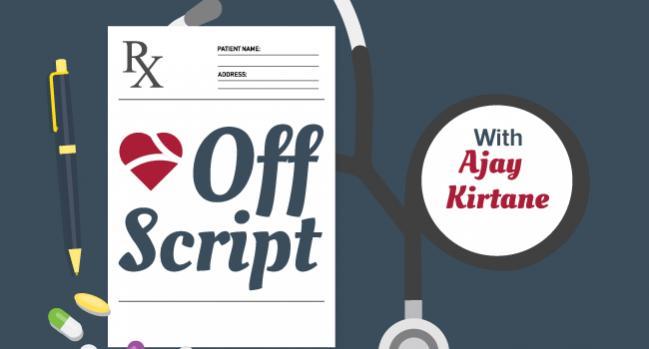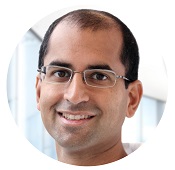The Curious Demographics of #CardioTwitter Gladiators and Other (Equally Obvious) Epiphanies
Quitting social media yields distraction-free time for information foraging and digestion, as well as some unexpected hindsight.

In November I stopped checking my Twitter feed, and stepping away from that world has been—to put it simply—glorious.
My holiday season was spent wholly with family, undistracted, and with nobody else living rent-free in my head. I don’t have FOMO. For information I really need, I now have time to look it up myself and am relieved to not have an algorithm serving me up so many random distractions, including who is “beyond humbled” to have been the first implanter of the device du jour in the northwestern part of their state. Freed from the continual quest for rare and selected nuggets of wisdom buried within the massive barrage of less useful tweets, I find myself reading more long-form articles, and in a more-focused fashion than before.
Because I have friends who are connected, I still occasionally get snippets of things I’ve missed, such as updates on the latest #CardioTwitter throwdowns. You know what I’m talking about. Those times when someone posts a tweet, and then the protracted to-and-fro rumble ensues [insert your favorite popcorn-eating gif]. Key disclaimer: I 100% partook in some of these, thinking I was adding balance or attempting to moderate the discussion. But in reflection now as an outsider, I am struck by several things.
First, where do we find the time to engage? Are our daily lives so mundane that we ignore how overcommitted we are with clinical work and family in order to escape into the world of our feeds? Are we tweeting between patient visits (hopefully not during them)? Are we scrolling and typing while we walk down the hall or on bio breaks during the day? I guess it’s true that opening the Twitter app is 20x faster than opening an EMR app like Haiku, and there is ZERO chance of getting the same hit of endorphins by answering the deluge of messages in our inboxes that we get from seeing a “like” or “retweet.”
One of the most interesting realizations I’ve had should also have been one of the most obvious: the overwhelming majority of Twitter battles, as well as the worst trolling that occurs on the platform, occurs from accounts belonging to—cue the drumroll—MEN. I like to think of myself as a discerning researcher and clinician, yet it took me almost 10 years on the platform to recognize how rare it is for a woman to get involved in a #CardioTwitter war. Not only do women seem less likely to hammer a cardiology-related issue that invites combatants to chase it down a rabbit hole, but the further down the thread one goes, the less and less likely it is to see a woman engaging.
As someone who has freely indulged in these gladiatorial nerd fights, I can only now see how childish we must seem as we engage in this bitter back-and-forth, furiously tweeting from the height of our toilet seats. Ajay Kirtane
When I first realized this, I thought of it as a unique discovery. This was validated when I mentioned my (ahem) epiphany to some of my male colleagues, who said they’d never fully appreciated it either. So it is with some sheepishness that I admit to being disappointed to learn that, in fact, every woman involved in #CardioTwitter likely already knows this and, indeed, when I pitched this blog to TCTMD’s editor, she estimated that 50% of the population wouldn’t be particularly surprised. This, at least, was a nicer way of saying “Duh, dude.”
This is a lesson in and of itself, especially for someone who considers himself to be—and works hard at being—sensitive to gender disparities. Beyond the simple fact that there are likely more men than women partaking in #CardioTwitter given the demographics of cardiovascular disease specialists, we should recognize upfront that the issue of not wanting to expose oneself to derision, trolling, or worse serves as a huge disincentive. There are many truly horrifying stories about misogyny on social media.
I also suspect the main reason most women working in cardiology, already tackling personal and professional hurdles not typically faced by their male counterparts, don’t engage is because they have the inherent sensibility that Twitter battles are a colossal waste of time, intelligence, and emotion. When Twitter turns into a free-for-all sandbox (with no parents supervising), most women have the good sense to stay the heck out.
As someone who has freely indulged in these gladiatorial nerd fights, I can only now see how childish we must seem as we engage in this bitter back-and-forth, furiously tweeting from the height of our toilet seats. How ironic that it is women, not men, who frequently get labeled as dramatic or hysterical. Across the range of interactions I’ve had professionally, as well as in social circles outside of medicine, I see the same behavior: guys have no issue being performative and pugilistic blowhards in public settings and are even more disinhibited on social media. Twitter is custom-made for that kind of interaction, so long as you can pack it into 280 characters per punch(line).
What about the folks on the sidelines enjoying the spectacle of grown men with seemingly busy lives and professions going at each other over intensely captivating medical minutia for days on end? This, too, takes inexplicable stamina. Just when you thought it was over, the same old arguments arise anew to be rehashed weeks (or months, or years) later. Probably the best place to settle the score or to “set the record straight” is in our own circles, in our own habits, or at structured meetings, where smacking a colleague in the head with the sandbox shovel is typically discouraged. Just as there are so few women in these raging Twitter battles, there are even fewer winners. A lesson it took me way too long to learn.
If it isn’t already clear, I don’t really miss my time off social media. It feels more organic to forage and devour information on my own, without getting force-fed from an app. Of course, there are inspiring and especially humorous tweets on the platform I used to love. There are also personal connections I value and will miss. But the trade-off just didn’t work out, and I have gained so much by getting my time (and sanity) back. Not only am I more present for those around me, but I hear about important news or information from colleagues and friends, who end up being my trusted and welcome filters. An interesting study or controversy has to be genuinely important to rise to the level of my attention. In addition, I have the time again to scan the tables of contents for key journals like I used to; if I miss something, I don’t lament that I’m no longer one of the first to know. I’ll find out soon enough, and it turns out it’s fundamentally nicer to be surprised with new information with the time and space to digest it properly.
Off Script is a first-person blog written by leading voices in the field of cardiology. It does not reflect the editorial position of TCTMD.
Ajay Kirtane, MD, SM, is Professor of Medicine at Columbia University Irving Medical Center (CUIMC) and Director of the Cardiac…
Read Full BioDisclosures
- Kirtane reports personal consulting/honoraria/speakers bureau fees from Medtronic, Abbott Vascular, Boston Scientific, CSI, Siemens, Philips, ReCor Medical, Chiesi, OpSens, Zoll, and Regeneron, as well as institutional grant support/research contracts from Medtronic, Abbott Vascular, Boston Scientific, CSI, ReCor Medical, Chiesi, Amgen, Neurotronic, Biotronik, Bolt Medical; Magenta Medical, and Canon.





Comments